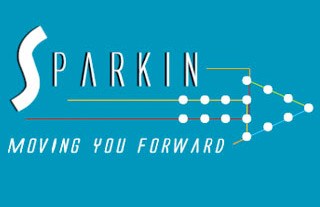A ‘Complete’ Strategic Planner?
In an environment when strategic planners are expected to be a bit of everything, (quant and ’qual, digital plus analog, brand not simply channel, experience not simply story… I asked a number of strategic planning department heads what they thought is key.
What key quality matters most?
Of all the skills and attributes mentioned, it was ‘curiosity,’ that was top of the pile, Gabrielle Tenaglia, (Globality) reflecting others’ beliefs in the importance of a constant desire for growth. Closely following were attributes that allow the curiosity to be satisfied. ‘Generosity’ highlighted by Conner Huber, (McGarry Bowen) ‘Versatility’ by Shobha Sairam, (The & Partnership) while Andrea Ring (Big Spaceship) advocated the importance of confidence/strong point of view while Marta LaRock (Geometry) pointed to the importance of ‘passion’ as key. A number of you also mentioned ‘empathy’ as being pivotal to being effective as a strategist.
The good news is that despite all that is apparently needed for todays’ generalist to thrive, what you regard to be a truly effective remains what’s always been key, an interest in and ability to understand people.
Below are a few links to articles that throw further light on some of the traits you highlighted.
Enjoy!
Stuart
PS. Please let me have your ideas on areas you would like to be covered.
Articles and commentary that might be of interest…
- Curiosity is as important as intelligence
- Open-minded people have a different visual perception of reality
- Authentic Happiness – University of Pennslyvania
- Empathy is actually a choice
- Confidence matters as much as ability
- 5 must-read articles on empathy and UX design
- The power of generosity
- Versatility is the key to effective leadership
Integrated Thinking and Polymaths?
More than ever, the agency world values integrated thinking; It needs creative polymaths
Think Da Vinci, Gallileo and Jobs, all polymaths or, ‘someone who has great and varied learning over complex bodies of knowledge…who can also solve complex tasks’.
Great creative strategists do this. With experience and vision beyond silos – not quantitative or qualitative approaches, digital or analogue, science or the arts – they bring together disparate ideas in new and exciting ways.
As ‘knowledge’ becomes cheap and accessible to all at the click of a button, inventive synthesis will be key. This skill will propel careers and push us up the value chain. Some find it innately but we can all improve.
The attached links may reveal something about the person you are, could or need to be.
Enjoy!
Stuart
Articles and commentary that might be of interest…
- Hidden talents – are you a polymath?
- Six Extremely Unique and Purpose Driven Polymaths
- Creative people’s brains really do work differently
- Talking Product & Polymaths with boomtrain’s CTO & Co-Founder
- How Creative Polymaths are Influencing Luxury Brands
- Why High-Skilled Freelancers Are Leaving Corporate Life Behind
- Where are the polymaths hiding?
- PR is not enough: we must all become polymaths to thrive
- Why 21st-Century Economy Needs More Polymaths
- Future of Work and Multipotentialites
Standout by Getting Your Employer Working For You
Whilst working at your current agency you should consciously pursue experience, education and connections that enhance your distinctiveness as a business problem solver. You should do what you are paid to do (help optimize the agency of which you are part) but also remember that not also leveraging the agency to build your own value, is a wasted opportunity.
Don’t Regret What Was
It’s only once you cease to work for an agency that you appreciate the many things that provides, some obvious and some less so:
A job;A Team; Resources, (financial/creative); Access; Training; Experience; Exposure.
Your working in an agency can be great for the agency’s and its clients business. It should also be a positive step for your career growth.
The Connection between Great Work and Your Success
Does a happy client and grateful agency means you will have an optimized fast tracked career? Perhaps.
If you have are known for being an active team player, a proactive individual that helps to resolve client challenges and optimize opportunities, does this mean you will have a fast-tracked career. Perhaps
Is your reputation for effectiveness and are the career opportunities afforded you directly linked. Perhaps
Why a great contribution Doesn’t Always Mean That You Benefit
For instance. If the agency loves the way you keep one client happy they may well be reluctant to move you to other accounts. Or, put another way, an agency whose priorities and timeline that differ to yours may prioritize training, work, performance and metrics that do not fairly reconcile your contribution, strengths or priorities; Or, you deliver but others claim the credit.
Delivering Consistently Means (In the absence of conscious career management)
If you do deliver consistently and others notice, you should survive (but don’t always).
If you are noticed you might not necessarily be rewarded at all or proportionately or in the way you might want to be.
Delivering tangible metrics yet without a career advocate, throws the recognition and aligned progression you deserve in to question.
Putting Your Employer to Work for You – How?
Accept responsibility for your career progression.
Always have an idea how you want to grow next even if you don’t know what you want your next challenge to be.
Have your own ‘purpose’ and pursue it, even if you don’t believe in the purpose of your employer, or its clients.
Ideally, anticipate what your next career step will be. The clearer you are about this the better able you will be to start harnessing the experience, knowledge and connections you will need to make you a shoe-in for the next role.
Loyalty – There’s No Need to Fall on Your Sword!
Gnaeus Domitius Corbulo, a Roman general, senator and consul under the Emperor Nero, ‘a Patten’ of his day, was inexplicably ordered by Nero, to take his own life. Nero, the Roman Emperor, was jealous of Corbulo’s military success and feeling threatened both by his ability and military backing, ordered Corbulo to do the unthinkable except to someone known to be completely loyal. Nero ordered Corbulo to fall on his sword, literally. Corbulo followed the order and as his sword was about to strike the sanctity of loyalty personified, he uttered the word, “Axios,” ‘I am worthy; I am loyal.’
Almost a daily conversation I have with individuals involve the words, ‘I am loyal.’ These are noble words, sought after words, words that any of us, personally or professionally would wish to hear from those around us! Why? Because the utterance of those words ‘I am loyal’ says as much about the individual as perhaps it does about us, that is if they are made in relation to us…Our family, our relationship, our agency. And even if they are not made in relation to us, the person uttering the words does so believing we understand the significance of those words.
All relationships, personal and professional, are based on loyalty, defined as a, ‘faithfulness to a person, country, group or cause.’ The value of loyalty in relationships, is that it allows for ‘some’ degree of certainty in planning, crucial to the running of anything, but particularly an agency. (Arguably one of the key threats to the advertising world is the lack of loyalty.) So how does such ‘faithfulness’ manifest?
Loyalty is not something that typically emerges overnight, although it can develop quickly when individuals, groups or teams face great adversity as it is under the most extreme circumstances that true allegiance is revealed. That said, loyalty is something that usually takes time to evolve and is earned when individuals believe others are genuinely invested in them and seek to respond in kind.
Equally, Fealty in a work context is not something that appears without a belief that the boss, the team, the agency culture, that we are loyal to, has not given to us over and over. This giving can be in the form of developing our business savvy, financial support or recompense, in developing the way we think, in creating a ‘virtual family’ for us, so long do people spend at work… The key point, ‘we’ feel that the boss, the team and/or the agency has provided things we consider to be very valuable and meaningful to us with the net effect, we feel beholden, defined as ‘owing thanks or having a duty to someone in return for help or a service.’ And, we should feel this, to a point. Where that ‘point’ is depends on how we have benefited and, what we have given in return, the most valuable thing that we can give, our time.
So, what of the daily utterance I hear, ‘I am loyal?’
Firstly, it is a good thing to here but, there is a true difference between loyalty to the animate and to the inanimate. To a person, a boss, a team when compared to a brand, a culture, an agency. One exists whilst the other ‘exists’ to make money. One has given to your development for reasons that might include money but invariably has given for personal reasons, there’s and yours. The other is not typically interested beyond your ability to help make money!
Very often an individuals’ sense of loyalty is misplaced. It is not to a boss or team, which have long since left the agency, but to the agency, which will hire or fire them very largely based entirely on business numbers, with little thought about them or the impacts of sudden job loss for them. Anyone that believes this is not true will be fortunate in their careers if they do not experience the reality of losing a job. (Perhaps they haven’t taken enough risks?) Then again, this is the power of a culture, that an individual can feel so much continued loyalty.
Secondly, whilst no-one can question the value of the trait of loyalty, there is a clear difference between loyalty and blind-loyalty, ‘being loyal to a person, agency or cause despite the damage the person/agency/cause inflicts.’
Damage is a relative term and typically more one of opportunity cost. The damage is relative loss of opportunity for more rapid development, be that more money, responsibility, practical and intellectual development to name a few things. Loyalty is proffered with the feeling that what has been provided for the individual and their development requires in turn that individual should not work for another boss, or team and certainly not for another agency as they perceive this would be ungrateful or in the worst case, disloyal.
My belief is that loyalty is a great thing, to experience or to seek. I say this as it means we have had great people around us, that we feel have shown an interest in our development. We should repay this loyalty to individuals certainly and to the nebulous concept of the ‘agency’ as well. But, today we have to be the Chief Coach in the management of our own careers. If we’ve had a nurturing boss, team or culture, fantastic. If others are mapping out our development for us and, we are growing, then ‘we’ are fortunate indeed. But that said, past growth is great, but it is, past. We need to continue to develop. And, if we can no longer do this in our current role, we must seek it most certainly in the agency to which we are loyal first and then if necessary, to look beyond.
Reviewing market possibilities or simply comparing our current salary, benefits and opportunities can actually make us even more loyal as we have a renewed sense of how well we are being looked after. Although, reviewing market opportunities can also be a wake-up call as individuals do see real opportunity for more rapid advancement. Some might suggest, in simply asking about the broader market, that an individual is acting in a disloyal manner I suggest not if you give your current employer every opportunity to keep you growing whilst you keep working hard and focused and take the suggested steps below.
Initially, we should seek the counsel of those individuals that have always helped us, to give them the opportunity to reassure, to re-equip or to provide new challenges. We should where possible (and where we believe the agency has the ability to deliver) be open about how we hope to develop. This openness along with all our hard work, is the way to return loyalty. (sometimes it is impossible to be open.) Having done this, if we are still unable to continue to develop in our current role or place of work, then we should look for new career challenges with our heads held high and in the words of General Corbulo, but without the tragic consequences, we can to ourselves at least, utter, ‘axios’ or, ‘I am worthy.’
January Strategy Newsletter
‘Narrate’ January newsletter for creative, digital, brand, media, connections, channel, communications, innovation and any combination of the aforesaid strategists, now available.
http://sparkin.createsend.com/t/ViewEmailArchive/i/147929037F109B9A/C67FD2F38AC4859C/
Best wishes,









